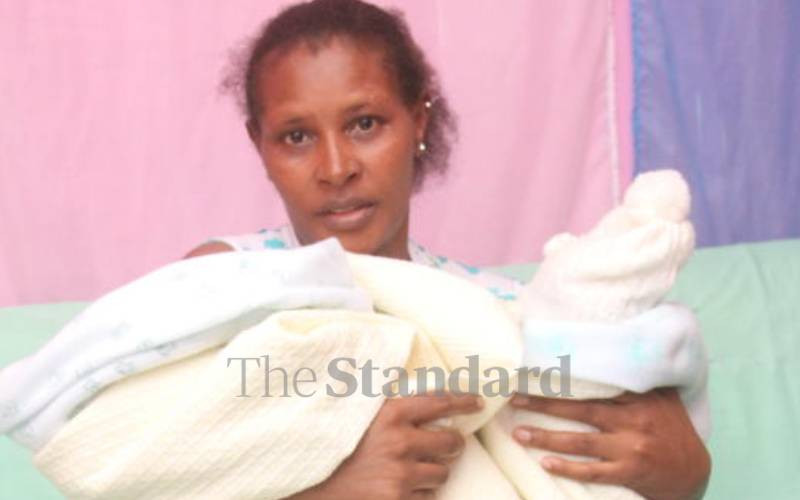
As a young girl, Beatrice Wanjiku Muthoni loved being in charge of other children because "I loved watching after them."
'Motherliness' was woven into her fabric and she looked forward to being an actual mother upon marriage - which happened in 2012 - when she expected to "conceive and be a mother within no time."
But alarm bells began ringing in by the second anniversary of the marriage when a doctor in Thika town recommended tests "to check if my fallopian tubes were blocked." They were.
 The Standard Group Plc is a multi-media organization with investments in media
platforms spanning newspaper print
operations, television, radio broadcasting, digital and online services. The
Standard Group is recognized as a
leading multi-media house in Kenya with a key influence in matters of national
and international interest.
The Standard Group Plc is a multi-media organization with investments in media
platforms spanning newspaper print
operations, television, radio broadcasting, digital and online services. The
Standard Group is recognized as a
leading multi-media house in Kenya with a key influence in matters of national
and international interest.











